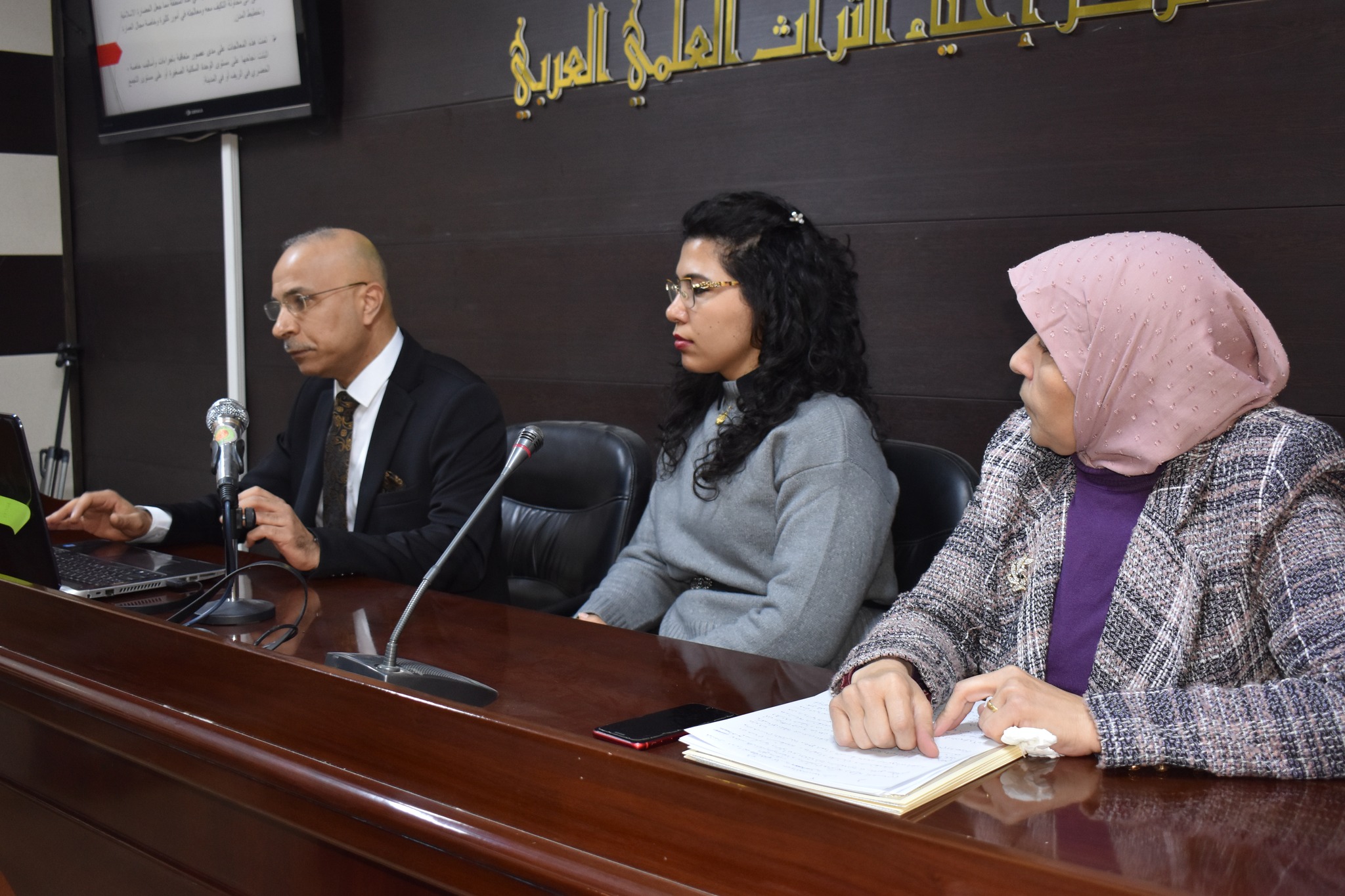
The center of heritage revival organizes workshop
(Science and Technology in the Arab-Islamic Civilization)
Under the supervision of Prof. Dr. Alaa Nafeh Jassim, Director of the Center, the Center for the Revival of Arab Scientific Heritage at the University of Baghdad organized on Wednesday morning, February 12, 2025, at exactly eleven o’clock in the morning, in the presence of a number of professors and researchers, and in the hall of Professor Nabila Abdel Moneim Daoud, a workshop entitled (Science and Technology in the Arab-Islamic Civilization). The lecture was given by Asst. Dr. Ali Abdul Asal, College of Engineering, University of Baghdad, Department of Architecture, in his joint research with Asst. M. Fatima Jamal, Engineer, entitled (Climate Treatments in the Arab-Islamic City), speaking about the most prominent environmental challenges that Muslims dealt with in their cities, such as hot climates and high temperatures. He also added the most prominent treatments for these challenges, including the urban level of the city and the architectural level. The lecture reviewed the Baghdadi House as an example of a private residential unit and the Mustansiriya School in general within the Islamic city, and then the lecture of Asst. Prof. Dr. Zainab Kamel Karim, Head of the Manuscripts Department at the Center for the Revival of Arab Scientific Heritage, University of Baghdad, and the title of her research entitled (Techniques and the Most Important Tools of Ibn al-Haytham) knowing that he is the pioneer of optics or the science of light from which the conditions of visible objects are known in their quantities and qualities based on their proximity and distance and the difference in their shapes, as Ibn al-Haytham is the one who gave the science of light and perspectives. The lecture was also given by Dr. Maha Rahim Salem, College of Arts, University of Baghdad, and the title of her research (Applied Sciences among Muslims), speaking about the applied sciences that touched on the translation and transfer movement that flourished in the Abbasid era, thanks to which many books were transferred and translated, including medicine, engineering, astronomy, algebra, pharmacy, chemistry, and natural sciences such as the science of tricks and physics, knowing the most important and prominent scientists of that period, which the Europeans relied on and built their scientific renaissance on its basis. In conclusion, the workshop included several interventions on the topic, and the director of the center thanked the lecturers, wishing them continued success and success in serving our university and our beloved Iraq.
مركز احياء التراث العلمي العربي مركز يعنى بالتراث العربي
